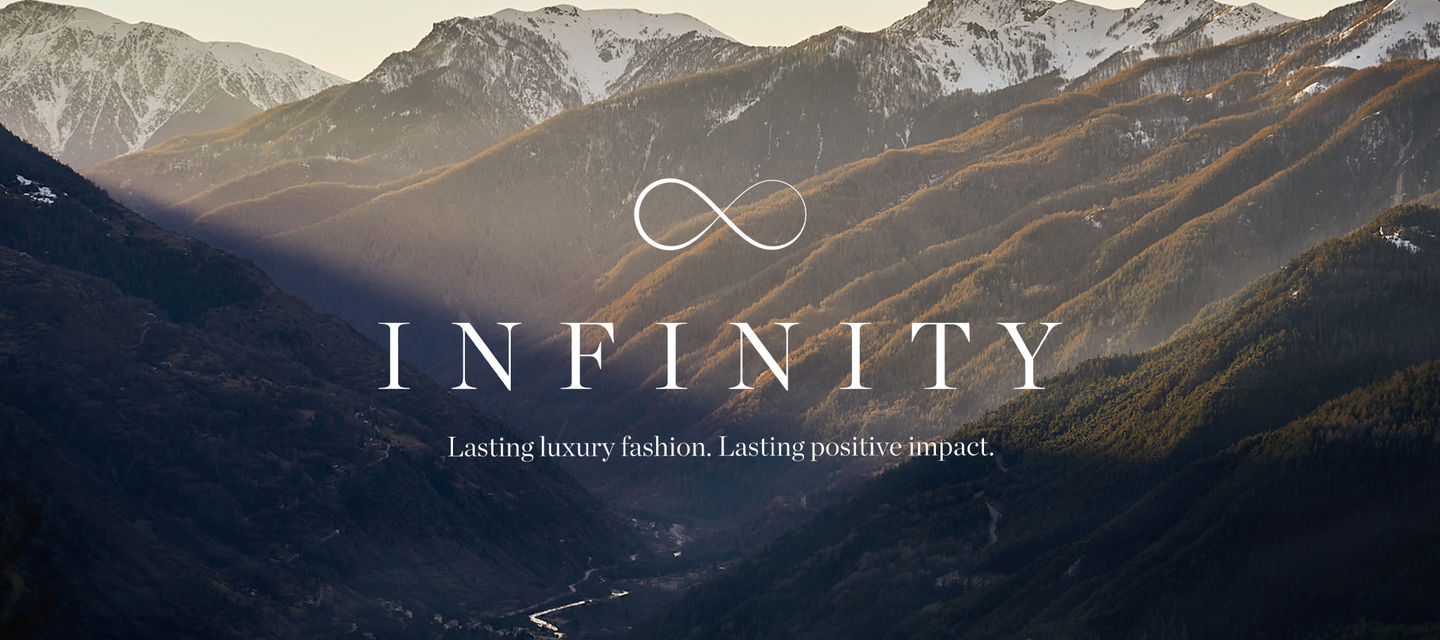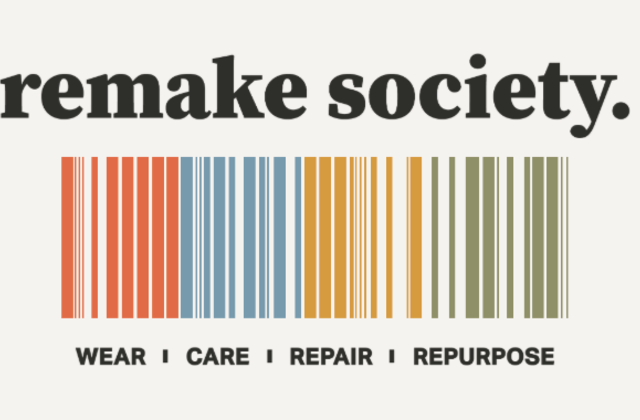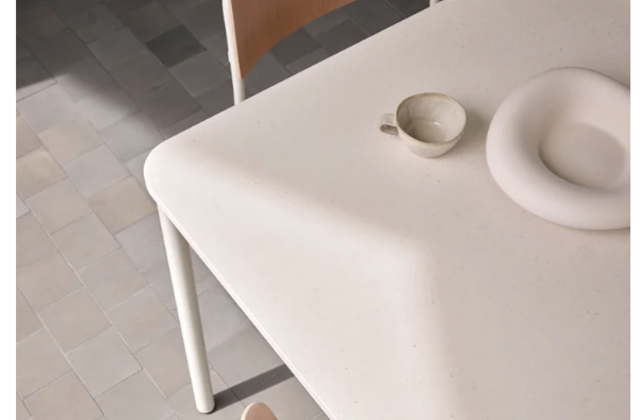Fashion, clothing and textiles
What is it? “YOOX NET-A-PORTER GROUP’s Infinity strategy aims to deliver lasting luxury fashion, working towards a more sustainable and inclusive circular fashion system for the industry” (YNAP, 2020). Its 10-year vision is underpinned by 12 measurable goals centered around 4 focus areas:
- Circular Business: pilots and initiatives to embed circularity across the Group, through innovation, new services and circular design, including initiatives to extend the lives of products by 2023
- Circular Culture: to increase the availability, desirability and transparency of sustainable and circular luxury and fashion, including online solutions to help customers but more consciously by 2022
- Planet Positive: to mitigate environmental impact e.g. by switching to 100% renewable power by 2020, investing in environmental restoration, and aiming to be a zero-waste business (reusing, recycling, composting) by 2023
- People Positive: creating a positive culture for the industry by empowering the next generation, which also includes developing entrepreneurial skills and contributing significant volunteering time by 2025
(YNAP, 2020)
Why is this important? The fashion industry is among the most polluting industries, concerning water usage, toxicity, greenhouse gas emissions and waste (Allwood et al., 2006). Moreover, fashion is found to be heavily underutilized in the mainstream fast fashion system and the number of wears of a garment has decreased by 36% in 15 years (Ellen MacArthur, 2017). Waste volumes from the sector are high: on average, UK consumers send 30kg of clothing and textiles per capita to landfill each year (Allwood et al., 2006).
Main resource strategies:
- Slowing resource loops through extending the product use-time and offering a repair service (‘Circular Business’ focus area);
- Closing resource loops through aiming to be a zero-waste business (‘Planet positive’ focus area);
- Regenerating resource loops through environmental restoration and using renewable power (‘Planet positive’ focus area).
Business model aspects:
- Value Proposition: empowering customers to make more conscious, sustainable and circular choices
- Value Creation & Delivery: The Infinity strategy focuses on private label design for the circular economy; sharing brand guidelines with others; offering repair solutions with local tailors, craftsmen, social entrepreneurs and start-ups in its 4 online stores, to keep products in active use and preserve their value for longer. Other parts of the strategy include ‘greening operations’ through renewable power and cutting out waste
- Value Capture: premium pricing for luxury which last longer and includes repair options and possible buy-back solutions; discounted pricing for repurposed / second-hand fashion which allows the company (and customer) to gain value from the same product multiple times; service models such as subscription that allow the company to generate revenue from products over time.
Strategies for degrowth/ sufficiency (based on sufficiency strategies from Niessen & Bocken, 2021):
- Life extension service & Reuse: The strategy explicitly features product longevity and inspiring conscious buying.
Business model experimentation practices:
All 12 Infinity commitments are underpinned by pilots and initiatives to share learnings, tools, and information to inspire and enable colleagues and brand partners (see YNAP, 2020). Below some examples can be found:
“Unlock Re-commerce” gives luxury products multiple lives by bringing innovative and re-commerce experiences to customers across the Group’s four online stores by 2025. For example, from 2021, piloting of re-commerce schemes across its platforms will begin. Each pilot scheme will be reviewed, revised and optimised to establish longer-term programmes across all 4 online stores by 2025.
“Make Loved Clothes Last” supports customers to make their loved clothes last by offering care and repair solutions across its 4 online stores by 2023. From 2021, the Group will design and launch care and repair pilots in collaboration with local tailors, craftsmen, social entrepreneurs and start-ups, to create unique propositions for its customers. Initial pilots will be introduced in Milan, London and New York.
Tools, methods and approaches used: By 2021, the Group’s sustainable and circular product and procurement framework will be developed, including guidelines and toolkits, for in-house private labels and brand partners, to establish and accelerate best practice in circular design (YNAP, 2020).
Sustainability outcomes: TBD, as this is a recently launched initiative (November 2020).
Sources:
Ellen MacArthur Foundation (2017). A new textiles economy: Redesigning fashion’s future. Accessed 25 November 2020 at https://www.ellenmacarthurfoundation.org/publications/a-new-textiles-economy-redesigning-fashions-future
YNAP (2020). YOOX NET-A-PORTER GROUP publishes new sustainability strategy – “Infinity” designed to bring luxury and fashion back into balance with our planet. Accessed 7 December 2020 at: https://www.ynap.com/news/yoox-net-a-porter-group-publishes-new-sustainability-strategy-infinity-designed-to-bring-luxury-and-fashion-back-into-balance-with-our-planet/
***
About project Circular X
Project Circular X is about ‘Experimentation with Circular Service Business Models’. It is an ambitious research project funded by the European Research Council (ERC) which supports top researchers from anywhere in the world. Project CIRCULAR X runs from 2020-2025. The project is led by Principal Investigator (PI) Prof Dr Nancy Bocken, who is joined by a multidisciplinary team of researchers at Maastricht Sustainability Institute (MSI), Maastricht School of Business and Economics, Maastricht University. The project cooperates with businesses who want to innovate towards the circular economy.
Project Circular X addresses a new and urgent issue: experimentation with circular service business models (CSBMs). Examples of such new business models include companies shifting from selling products to selling services and introducing lifelong warrantees to extend product lifetimes. However, CSBMs are far from mainstream and research focused on experimentation is little understood. The research aims to conduct interdisciplinary research with 4 objectives:
- Advancing understanding of CSBMs; their emergence and impacts
- Advancing knowledge on CSBM experimentation
- Developing CSBM experimentation tools
- Designing and deploying CSBM experimentation labs
Funding source
This project has received funding from the European Research Council (ERC) under the European Union’s Horizon 2020 research and innovation programme, grant agreement No. 850159.
Using of this information
When you refer to this case, please use the following source:
Circular X. (2020) Case study: YOOX NET-A-PORTER - Infinity strategy. Accessed from www.circularx.eu



